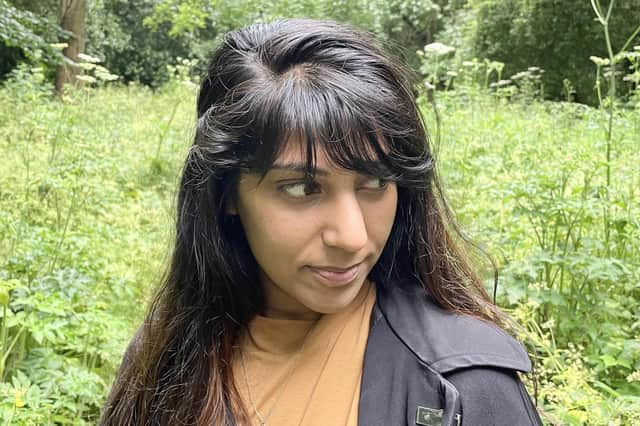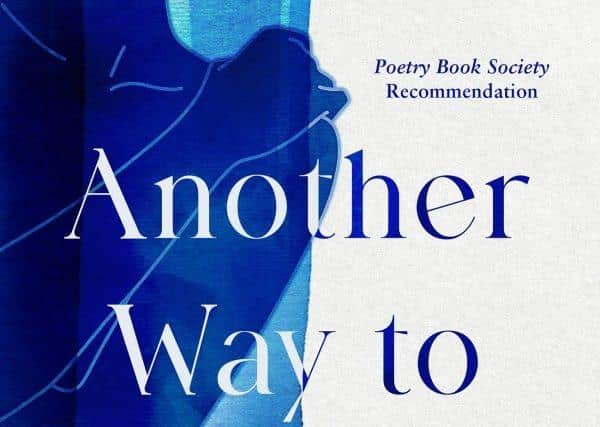Book review: Another Way to Split Water, by Alycia Pirmohamed


Water flows, ripples or cascades into almost every poem in the first full collection by Alycia Pirmohamed, winner of the 2020 Edwin Morgan Poetry Prize. It might be as a reflective surface, a prairie downpour, an ocean over which a Boeing aircraft carries migrating travellers to a new country. It also serves to remind us that poetry itself is fluid: the words take the shape of whatever vessel, whatever set of ideas the writer chooses.
Pirmohamed was born and raised in Canada and now lives in Scotland, but family ties link back to Tanzania and, before that, India. At the heart of this book is an exploration of what it means to feel the tug of these disparate homelands, perhaps never quite belonging in any of them.
Advertisement
Hide AdOften, the poems are in motion, describing journeys on foot, by plane, driving. Arrival is uncertain, the needle of a broken compass “hovering briefly as if to say – you have reached your destination, or, perhaps you are not lost”. The sense of longing is pervasive. One poem, part of a sequence on Persephone, ends, devastatingly: “You have asked, / so listen: I will never be whole.”
At the same time, the poems collapse borders and distances. In a poem called “Prairie Storm”, “the rain knows how to fall in Gujarati”. Wolves howl in Gujarati too. Pirmohamed describes birch trees in Canada and in Scotland, narrowing the gulf between the two.
Landscape is at the heart of many of the poems, with Western Canada evoked particularly vividly: “Radio static, the white noise of prairies / twenty minutes outside of the city / where, for miles, / all you will ever see is that one spotted calf / walking into the sunset.” Though, in fact, this kind of pure description is rare. More often, the landscape is part of the poetic toolkit with which she reflects on interior questions like belonging or identity.
Pirmohamed writes with a flow which is rarely interrupted. She has a fine ear for the musicality in words and knows exactly where a line should turn. While she seems most at home with couplets, she masters a range of forms. Language is well chosen, rarely ostentatious, though, on several occasions, nouns turn into verbs: “river” more successfully than “symmetry” or “god”.
The book is divided into two parts. In the first, water images predominate. Parting her hair creates “a river on either side”. There are reflections and doublings. Ideas, like water, shift and reshape themselves, memories even more so. Many of the poems reference dreams where, of course, everything is fluid.


The second part begins with a contrast, a poem called “Welcome” which explores, among other things, what it means to be Muslim in North America. “You know better than to feel welcome at anything resembling a border” it begins, later reflecting on “the memory / of one body separating from another, the split / into them and us once the towers fell”.
Advertisement
Hide AdOther poems explore her relationship to faith, and these, too, are often tinged with longing or regret. She reads fractured prayers from the cracked screen of a mobile phone; the soft incantation of alhamdulillah echoes in her “western tongue”. Yet the desire for faith – like the prayers themselves – persists.
“Afterward” is a profound poem of loss, capturing with a rare directness the overwhelming sense of being unmoored by grief. “Where is anything now?” it asks, starkly, as the speaker in the poem describes finding strands of her mother’s long black hair in the sink: “Now, a deep echo / like the kind of emptiness / left behind once / all the birds have taken off.”
Advertisement
Hide AdThese are poems for a global age, where we move between cultures with apparent ease and might have several lands – or none – which we call home. Pirmohamed describes expecting a lesson from the two elk which cross her path during a hike in “Elegy with two elk and a compass” and, though they gallop away, she gets the message. “The elk, in their way, have mastered living by mastering letting go”.
Another Way to Split Water, by Alycia Pirmohamed, Polygon, 96pp, £10. Alycia Pirmohamed is appearing at the Edinburgh International Book Festival on 13 August, www.edbookfest.co.uk